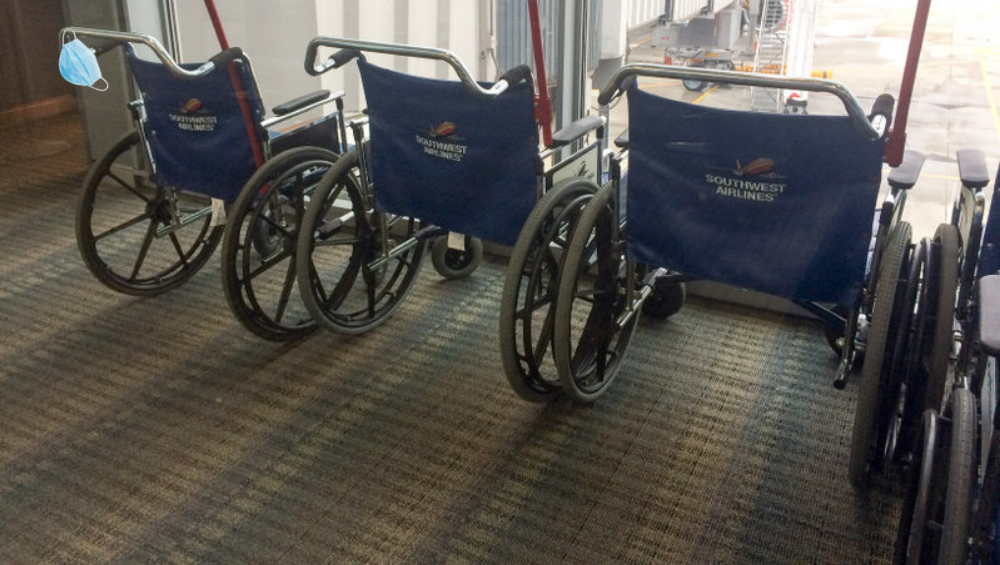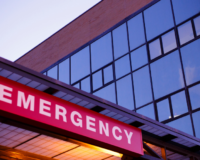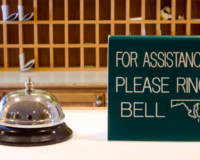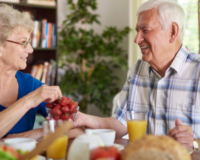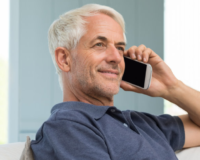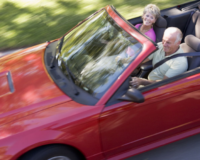It’s been a few months already since my elderly grandfather has received the Pfizer vaccine and he is again rejoining us at family gatherings. During the height of the COVID-19 pandemic he and his wife were locked down pretty much until they both received the Pfizer vaccine. It was kind of a difficult time for the family as we knew they could really use our assistance. But naturally like many other elderly couples they refused any contact as they were afraid of contracting the COVID-19 virus. It was not uncommon for my grandfather to fall and should have been seen by a doctor but he was afraid to go out and didn’t get checked out. Sometimes the family didn’t even know about whether or not he fell. It was a time where seniors were simply afraid to have contact with pretty much anyone even if it meant sacrificing medical attention.
Looks like we are on the other side of that at least for the time being but it’s not clear how families should handle the elderly in a public setting. We can’t just tell them not to go out as it’s necessary for their social wellbeing to be around family. Young government officials around the world can easily enforce a lockdown but they are not in touch with the social implications it can have on people of all ages. The CDC has documented on their website that if you are fully vaccinated you can resume activities that you did prior to the pandemic. If that is the case for at least the time being then how can caregivers deny the elderly the right to attend family events?
Should The Elderly Who Are Vaccinated Wear a Mask or Not?
This question has nothing to do with your political affiliation or what your stance is on mask wearing. It’s about keeping your parents or grandparents safe and not getting your information from a news network that will not provide clarity on this topic. Best thing would be to reach out to their geriatric doctor and to follow their advice on mask wearing. It also depends on if you will have to fight with them to wear a mask. If they are adamant against mask wearing it’s not worth the fight. Elderly who are independent will be a lot harder to convince and all you will get out of this fight is a lot of frustration. Neither you nor the one in your care will enjoy this family event if you hover over them like a hawk making sure that they’re wearing a mask. As a caregiver, when you decide to take them out it’s because you have assessed the situation and deemed it safe. At this point the mask is not going to make or break it because there is a good chance that a family member is going to come over and give them a hug or a kiss.
So we are indeed taking out our elderly parents because they are vaccinated and protected against contracting the COVID-19 virus. True, there are those who were vaccinated and still contracted the coronavirus but at least most of them were not hospitalized and recovered in a reasonable period of time. Since that’s the case, it’s safe to assume that with the vaccine the caregiver has determined that a family event is safe for an elderly parent with or without a mask. Doing scare tactics about contracting the virus will only get them upset at you and be very unproductive in a public setting. Discuss with them what the CDC recommends for those who are vaccinated and let them decide on what they want to do in regards to wearing a mask. This way there are no surprises for them or their caregiver and they can enjoy seeing the family. It’s a momentous occasion for everyone and you want them to take in the positive atmosphere as it’s very good for their social and psychological health to see people that love them once again.
Make Sure Your Elderly Parent Is Well Rested Prior To The Event
Caregivers need to be aware that when an elderly parent goes out to an event it takes a lot of effort and strength on their part and they should be well rested. Keep in mind that they have not done this in a long time and it could be easy for them to tire rather quickly. That’s why it’s important for them to take the time to be fully rested prior to the event. Always inquire on how they are feeling and if they are ready to leave. You want to have multiple time options for them leaving the event. They might want to leave early and you might want to stay late. Prepare your options in advance and let them know the eligible times to travel home. If they do get another ride without you, be clear to the driver as to what they are capable of doing and what they are not. Let the driver know where they prefer sitting in front or the back. Do they need help getting out of the car and into their home? Is there room in the trunk for a walker or rollator? These are all things that should be communicated to the driver prior to being certified by you, the caregiver as a travel option for an elderly parent.
What About Traveling Amid The New Delta Variant?
In an article published by the Washington Post, Amber D’Souza, professor of epidemiology at the Johns Hopkins Bloomberg School of Public Health, seems to say that it’s still ok to consider taking those trips. However, after completing the read of the article one does not get a clear direction on whether or not they can travel abroad. Then the author directs you to the CDC website where they give you a heat map for travel recommendations based on COVID-19 risk assessment. But when you see that one of the only countries is China with a level 1 risk assessment (risk of getting COVID-19 is low) you kind of question the whole map in general.
We all have lots of uncertainties about what we can do and what we can’t do. Besides the pandemic wreaking havoc on people and economies all around the world, people have a lack of clarity or direction when it comes to things like traveling abroad with really no solid answers. The question you have as a caregiver that needs to be answered is, will this trip be good for your loved one or not? Most people can answer that question because there is often a lot that goes into traveling by plane with the elderly and with risk of contracting the new delta variant plus wearing a mask while flying, you should be well equipped to answer that question at hand.
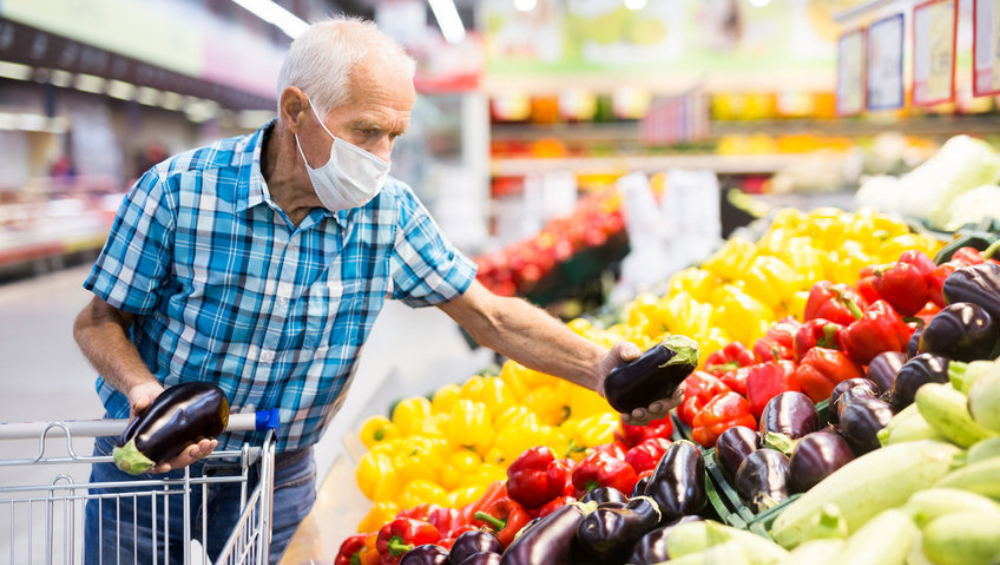
So there is no one answer for all. Some elderly may find it difficult to fly while others may not. Perhaps it’s the caregiver who has the anxiety when flying with an elderly parent or maybe they just don’t like flying in general. These are all things to think about prior to deciding whether or not to book that vacation for a parent or loved one. No one can tell you what to do, you’re vaccinated and the risk of contracting any type of coronavirus is rather low. Weigh out the pros and the cons and make the decision yourself.
Final Thoughts
Unfortunately, our society has gotten used to having things delivered to them on a silver platter. People expect to know what they will be getting into and to have clarity on the issue of traveling during a pandemic. Well, it’s clear that no one is giving a straightforward answer as even the biggest media outlets like the Washington Post are wishy washy. In all truth they would be silly to say a simple yes or no. Even the greatest doctors are perplexed by coronavirus and whom it chooses to harm the most. In the beginning we were told that it only affects people that are 60+ only to find out a few months later that men in their 30’s are at risk too. Then with the recent spread of the delta variant it is quite apparent that it affects children too.
All of this information can be quite overwhelming for caregivers especially with elders with compromised immune systems. However as mature and grown adults we have to take in as much reliable information as we can and make a risk assessment for the individual in our care and be confident with our decision. There is no one size fits all which is why you as a caregiver are in the driver’s seat. A good idea would be to discuss with your elderly parent the risks involved and let them be part of the decision. Maybe they are not comfortable taking the risk of traveling by air. Perhaps they will recommend a short car ride to a cabin in the Smoky Mountains. It’s always best to have your loved one in on the decision and it also takes a burden of responsibility off your shoulders. Stay safe and I wish you the best of luck!
